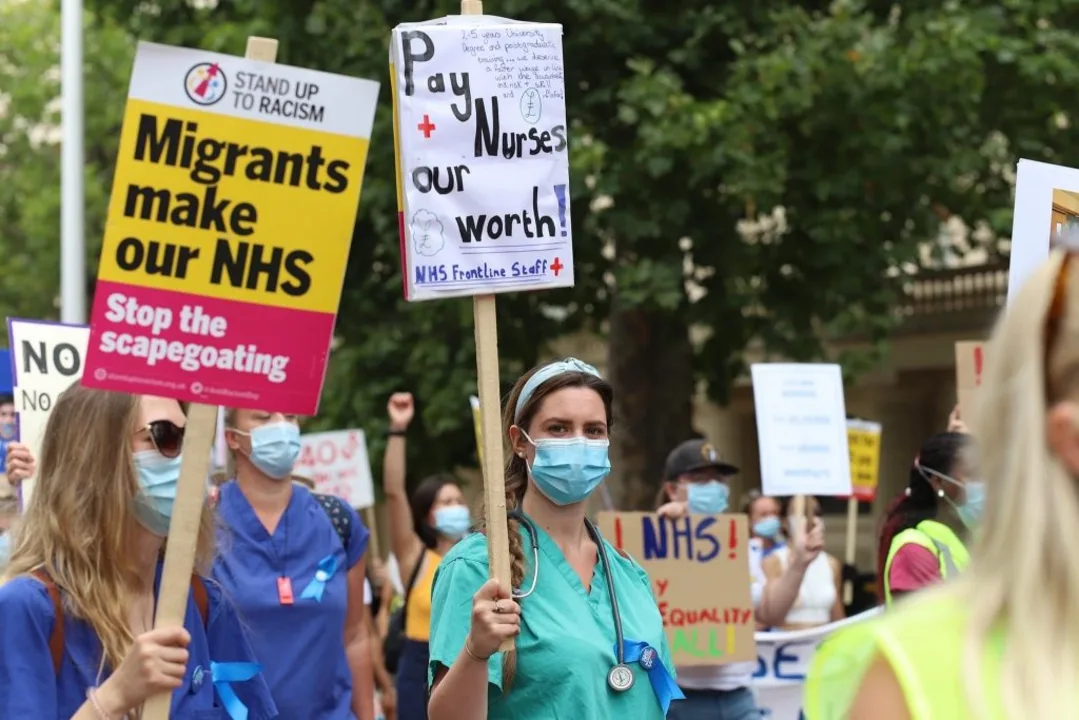Introduction: The Importance of Nurses in Society
Nurses play a crucial role in our healthcare system, as they are on the front lines when it comes to delivering care to patients and supporting doctors in their work. They work tirelessly to ensure that we receive the best possible care and attention when we need it most. As the backbone of the healthcare system, it is only fair that nurses be treated with respect and rewarded with a wage that reflects their hard work and dedication. In light of the recent announcement of a 1% pay rise for nurses, is this enough? In this article, we will explore this issue and discuss the implications of this decision.
The Current State of Nurses' Salaries
Before we delve into the topic of the 1% pay rise, it's essential to understand the current state of nurses' salaries. Over the past decade, nurses have experienced a significant decrease in their pay in real terms due to the rising cost of living and inflation. This has resulted in many nurses struggling to make ends meet and has led to a decline in morale within the profession.
Many nurses are forced to work extra hours or take on additional jobs to supplement their income. This increased workload not only affects their mental and physical health but also has an impact on the quality of care they can provide to their patients. The current pay structure for nurses is unsustainable and needs to be addressed to ensure the continued provision of high-quality healthcare.
The Impact of the 1% Pay Rise on Nurses
On the surface, a 1% pay rise may not seem like much, but it is important to consider the implications of this increase on nurses and their families. For many, this small increase will not be enough to keep up with the cost of living, and they will continue to struggle financially. This can lead to increased stress and burnout, which, in turn, can affect patient care and outcomes.
Moreover, a 1% pay rise does little to address the issue of nurses' salaries falling behind those of their counterparts in other professions. This can make nursing a less attractive career choice for young people, leading to a shortage of qualified nurses in the future. In the long run, this can have severe consequences for the healthcare system and the quality of care provided to patients.
The Public's Perception of the 1% Pay Rise
Since the announcement of the 1% pay rise, there has been widespread public outcry and support for nurses. Many people feel that the pay rise is a slap in the face to the hardworking nurses who have put their lives on the line during the COVID-19 pandemic. This public support has put pressure on the government to reconsider their decision and offer a more substantial pay increase.
It is clear that the public values the work of nurses and believes that they deserve a fair wage that reflects their dedication and sacrifices. Ignoring this public sentiment may have repercussions for the government, as it could lead to a loss of trust and support from the electorate.
The Importance of Investing in Nurses
Investing in nurses is not only a matter of fairness but also a strategic decision for the future of our healthcare system. With an aging population and increasing demand for healthcare services, we need to ensure that we have a skilled and dedicated nursing workforce to meet these challenges. By offering competitive salaries, we can attract the best candidates to the profession and retain experienced nurses who might otherwise leave for better-paying jobs.
Furthermore, investing in nurses can lead to better patient outcomes and overall improvements in the quality of healthcare services. Research has shown that higher nurse staffing levels and better working conditions are associated with lower patient mortality rates and better patient satisfaction. By ensuring that our nurses are well-compensated and supported, we are ultimately investing in the health and well-being of our society as a whole.
Alternative Solutions for Supporting Nurses
While a more substantial pay rise would undoubtedly be welcomed by nurses, there are other ways in which we can support them and show our appreciation for their hard work. For example, providing better working conditions, more flexible hours, and additional training opportunities can go a long way in improving job satisfaction and overall morale within the profession.
Furthermore, we can work to address issues such as staff shortages and high patient-to-nurse ratios, which can contribute to burnout and stress among nurses. By addressing these underlying issues, we can create a more sustainable and supportive environment for nurses, which will ultimately benefit patients and the healthcare system as a whole.
Conclusion: Is the 1% Pay Rise Enough?
In conclusion, the 1% pay rise for nurses is not enough to address the challenges faced by the profession. It does little to improve the financial situation of nurses and does not reflect the value and importance of their work in our society. To ensure the future of our healthcare system and to provide the best possible care to patients, we need to invest in our nurses and offer them a fair and competitive wage that reflects their dedication and sacrifices.
